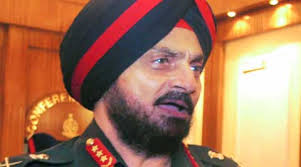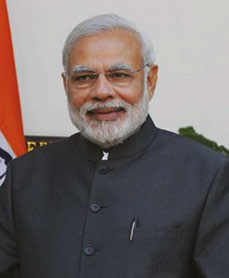
The ‘Pension subject to future good conduct’ rule must be challenged in the courts and in the interim disregarded with contempt.

“All major democracies make optimum use of the experience of their retired government officials. While some become part of the government, others contribute by educating the public and throwing up new ideas/suggestions for the consideration of the government. The domain expert keeps a check on a majoritarian government facing a weak opposition by publicly speaking and writing. All governments try to hide failures and scrutiny for inefficiency. With a weak opposition and government-friendly media, the Bharatiya Janata Party dispensation is more worried about the perceived threat from the retired officials with domain expertise than an ill-informed opposition.”
On 31 May2021, the Ministry of Personnel, Public Grievances and Pensions, which is headed by Prime Minister Narendra Modi, issued a gazette notification amending Rule 8 — “Pension subject to future good conduct” — of the Central Civil Services (Pension) Rules 1972. The amendment prohibits retired personnel who have worked in any intelligence or security-related organization included in the Second Schedule of the Right to Information Act 2005 from publication “of any material relating to and including domain of the organization, including any reference or information about any personnel and his designation, and expertise or knowledge gained by virtue of working in that organization”, without prior clearance from the “Head of the Organization”. An undertaking is also supposed to be signed to the effect that any violation of this rule can lead to withholding of pension in full or in part.
There are 26 organizations included in the Second Schedule of the RTI Act, including the Intelligence Bureau, Research & Analysis Wing, Directorate of Revenue Intelligence, Central Bureau of Investigation, Narcotics Control Bureau, Border Security Force, Central Reserve Police Force, Indo-Tibetan Border Police and Central Industrial Security Force. These organizations are excluded from the RTI Act. Ironically, the armed forces, which are responsible for the external and at times internal security, are covered by the Act.
In 2008, Rule 8 was first amended to make more explicit the existing restrictions under the Official Secrets Act by barring retired officials from publishing without prior permission from Head of the Department any sensitive information, the disclosure of which would “prejudicially affect the sovereignty and integrity of India, the security, strategic, scientific or economic interests of the State or relation with a foreign State or which would lead to incitement of an offence.” An undertaking similar to the present amendment was also required to be signed.
The scope of the 31 May amendment is all-encompassing, and its ambiguity leaves it open for vested interpretation and virtually bars retired officers who have served in the above-mentioned organizations from writing or speaking, based on their experience in service or even using the knowledge and expertise acquired after retirement. There is an apprehension that in future, the rules of other government organizations, including the armed forces, may also be amended to incorporate similar provisions.
The motive behind the amendment
All governments are legitimately concerned with safeguarding national security. Almost all countries have laws for the same. However, political dispensations often use these provisions to stifle criticism of the government, particularly by retired government officials who, based on their domain knowledge and experience, enjoy immense credibility with the public.
Originally, Rule 8 allowed withholding/withdrawal of pension or part thereof, permanently/for a specified period if the pensioner was convicted of a serious crime or was found guilty of grave misconduct. “Serious crime” included crime under Official Secrets Act 1923 and “grave misconduct” also covered communication/disclosure of information mentioned in Section 5 of the Act.
There was no requirement of prior permission before publication of any book or article, and prosecution under Official Secrets Act was necessary before any action could be taken. No undertaking was required to be given by the retiree officials. There is no noteworthy case in which this provision was invoked.
The motive behind the 2008 amendment by the UPA and the present amendment by the NDA, was/is to crack down on dissent by retired officials without the due process of law. This, when despite recommendations of the Law Commission and Second Administrative Reforms Commission, no effort has been made to amend the 98-year-old Official Secrets Act to cater for current requirements of national security. The only difference between the two amendments is that the latter makes the rule more absolute by adding the ambiguous rider regarding publication without permission “of any material relating to and including ‘domain of the organization’, including any reference or information about any personnel and his designation, and expertise or knowledge gained by virtue of working in that organization.”
The amendment to Rule 8 is unlikely to withstand the scrutiny of law. The Supreme Court and the high courts have repeatedly upheld the principle that “pension is not a bounty, charity or a gratuitous payment but an indefeasible right of every employee”. The government cannot take away the right merely by giving a show cause notice to a retired official for having used “domain knowledge or expertise” while writing an article/book or speaking at any forum. Any application of this amendment will be thrown out by the courts. No wonder that there has been no known application of the amended rule since 2008. There has been no alarming increase in cases under the Official Secrets Act. Between 2014 and 2019, 50 cases have been filed in the country and none against a government official. And if a government official is actually guilty of violating national security, then is withdrawal of pension an adequate punishment?
What does the government then gain by this amendment? Simple, the new amendment acts as deterrent against criticism by retired officials. Which self-respecting retired government official would like to seek permission from her/his former junior or fight a prolonged legal battle to get his pension restored? The government’s will, thus, prevails not by the wisdom of its decision but by default.
Loss to the nation
All major democracies make optimum use of the experience of their retired government officials. While some become part of the government, others contribute by educating the public and throwing up new ideas/suggestions for the consideration of the government. The domain expert keeps a check on a majoritarian government facing a weak opposition by publicly speaking and writing. All governments try to hide failures and scrutiny for inefficiency. With a weak opposition and government-friendly media, the Bharatiya Janata Party dispensation is more worried about the perceived threat from the retired officials with domain expertise than an ill-informed opposition.
Given the Modi government’s obsession with respect to national security and its lackadaisical performance in its management, it is my view that in the near future, the government will incorporate similar provision in the pension rules of other government departments and the armed forces.
A case in point is the attempt by the Modi government to deny/obfuscate the intelligence failure and the preemptive Chinese intrusions. To date no formal briefing has been given about the actual situation in Eastern Ladakh. Doctored information has been fed to the media through leaks by government/military officials. Three retired defense officers, including the author, brought the real picture before the public through articles and media interviews. All were careful to safeguard operational security. A concerted campaign was launched to discredit these retired officers through government-friendly media and pliant defense analysts until the events overtook their detractors to prove them right. The author extensively used his knowledge of the terrain in Eastern Ladakh to bring the truth before the public. In a similar situation in future, these officers may well be battling in courts to safeguard their pensions.
Imagine a situation that in future when no historical accounts of our wars, counter insurgency/terrorism campaigns and communal riots can be written by retired government and armed forces officers. No retired official will be eligible to head our security related think tanks or speak in international forums about our experience. Despite provision of Section 8(3) of the RTI Act to declassify documents after 20 years, the government never does so except to score political points as in the case of Netaji Files.
The amendment to Rule 8 of Central Civil Services (Pension) Rules 1972 is nothing more than a blatant, overarching and draconian gag order against retired officials to manage the public narrative for political interests under the garb of safeguarding national security.
It safeguards the interests of the political dispensation and not the nation. It must be challenged in the courts and in the interim disregarded with contempt.
(Lt Gen H S Panag PVSM, AVSM (R) served in the Indian Army for 40 years. He was GOC in C Northern Command and Central Command. Post retirement, he was Member of Armed Forces Tribunal)
(Edited by Anurag Chaubey)
(Source: The Print).
Note: Except for the heading edited by The Indian Panorama, the body, as edited by Anurag Chaubey stays intact.
Heading suggestion comes from one of our regular contributors Dave Makkar.





Be the first to comment